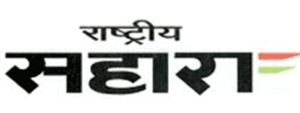
21-06-2016 (Important News Clippings)
Date: 20-06-16
जीएसटी से बंधी उम्मीद
राकेश गुप्ता
भारत, पाकिस्तान और बांग्लादेश को दक्षिण एशिया की समृद्धि के लिए आर्थिक एकीकरण की दिशा में प्रयास करने चाहिए। इससे दुनिया की सबसे बड़ी आबादी को फायदा होगा।
रल की वाम गठबंधन सरकार ने भी वस्तु एवं सेवा कर (जीएसटी) विधेयक का समर्थन कर दिया है। इसके बाद करीब 12 वर्षो से लटके जीएसटी विधेयक के राज्य सभा से भी पारित होने की उम्मीदें बंध गई हैं। वैसे तो हाल ही में राज्य सभा की 27 सीटों के लिए हुए चुनाव में एनडीए की सीटें बढ़ने के साथ ही सरकार ने संसद के आगामी मॉनसून सत्र में जीएसटी बिल पेश करने की मंशा जाहिर कर दी है। जीएसटी का पारित होना देश में आर्थिक सुधारों की दिशा में एक क्रांतिकारी कदम होगा। हमारे देश में जीएसटी, भूमि अधिग्रहण, प्रत्यक्ष विदेशी निवेश, श्रम सुधार आदि ऐसे मुद्दे रहे हैं, जिन पर पार्टयिों ने सत्ता में आने और सत्ता से हटने बाद अलग-अलग रुख रखा। जीएसटी और हवाई अड्डों का निजीकरण इसका सबसे बड़ा उदाहरण है। भाजपा हवाई अड्डों के निजीकरण का विरोध करती थी, लेकिन सत्ता में आने पर उसने निजीकरण की नीति को सबसे ज्यादा आगे बढ़ाया। जीएसटी पर वाजपेयी सरकार ने पहल की, कांग्रेस ने उसका विरोध किया, फिर कांग्रेस ने आगे बढ़ाया और भाजपा ने विरोध किया, अब भाजपा नेतृत्व की सरकार आगे बढ़ रही है, तो कांग्रेस उसका विरोध कर रही है। मौजूदा सरकार के सामने संकट है कि उसका राज्य सभा में बहुमत नहीं है। कांग्रेस 64 सीटों के साथ सबसे बड़ा दल बना हुआ और भाजपा अभी भी 47 सीटों पर ही अटकी है। अलबत्ता, एनडीए की सीटें बढ़कर 74 हो गई हैं और कांग्रेस गठबंधन घटकर 71 सीटों पर आ गया है। जबकि क्षेत्रीय दलों के पास 89 सीटें हैं। यानी किसी भी विधेयक को पारित करने के लिए सरकार को बार-बार क्षेत्रीय दलों की शरण में जाना होगा। क्षेत्रीय दलों में समाजवादी पार्टी के पास 19, जदयू और राजद के संयुक्त सदस्यों की संख्या 12, तृणमूल कांग्रेस और अन्नाद्रमुक के सदस्यों की संख्या 12-12 है जबकि बसपा के 10 सदस्य, माकपा के आठ सदस्य, बीजद के 7 सदस्य और द्रमुक के 5 सदस्य हैं। भाजपा को सामान्य तौर कोई अन्य दल समर्थन नहीं देता। मोदी सरकार ने सत्ता में आते ही भूमि अधिग्रहण कानून में संशोधन करने की कोशिश की। सरकार ने तीन बार अध्यादेश भी जारी किया, लेकिन कांग्रेस समेत अन्य विपक्षी दलों ने उसका विरोध किया जिसके कारण सरकार को कदम पीछे खींचने पड़े जबकि 2013 में भूमि अधिग्रहण कानून लागू होने के बाद से करीब 23 राज्यों के मुख्यमंत्रियों ने कानून में बदलाव करने की मांग की थी। मौजूदा स्थिति में जीएसटी के पक्ष में एनडीए के 74, समाजवादी पार्टी के 14, जदयू और राजद के 14, तृणमूल कांग्रेस के 12, बसपा के 10, बीजद के 7 सांसद खड़े हैं। वाम गठबंधन 9 सदस्य भी जीएसटी के पक्ष में उतर आए तो 140 हो जाती है। विधेयक को पारित कराने के लिए सरकार को कम-से-कम 145 सदस्यों की आवश्यकता है। अन्नाद्रमुक के 12 सदस्य हैं। तमिलनाडु की मुख्यमंत्री जे जयललिता ने अभी निर्णय नहीं लिया है, लेकिन उम्मीद है कि प्रधानमंत्री नरेन्द्र मोदी उन्हें भी मना लेंगे। कांग्रेस ने भी अपना रु ख नरम करते हुए कहा है कि यदि सरकार उनके संशोधनों को स्वीकार करती है, तो वे विधेयक का समर्थन कर सकते हैं। जीएसटी लागू होने के बाद देश में अप्रत्यक्ष करों में बड़ा सुधार होगा। अभी देश के विभिन्न राज्यों में एक ही वस्तु पर भिन्न कर वसूले जाते हैं। एक वस्तु किसी राज्य में सस्ता तो किसी में महंगा हो जाती है। जीएसटी लागू होने के बाद पूरे देश में समान कर और वस्तुओं की समान कीमत से कारोबार करना भी सुगम होगा और उपभोक्ताओं को सहूलियत होगी। जीएसटी लागू होने पर केंद्र सरकार राज्यों को राजस्व के नुकसान की भरपाई के लिए पहले तीन वर्षो में शत-प्रतिशत मुआवजा देगी जबकि चौथे वर्ष में 75 फीसद और पांचवें वर्ष में 50 फीसद मुआवजा दिया जाएगा। एक दर वाला जीएसटी उत्पाद कर, राज्य वैट, मनोरंजन कर, आक्ट्राय, प्रवेश कर, वस्तु एवं सेवा पर खरीद कर जैसे अन्य करों का स्थान लेगा और इससे वस्तुओं एवं सेवाओं का निर्बाध हस्तांतरण सुनिश्चित किया जा सकेगा। शराब को जीएसटी के दायरे से पूरी तरह से बाहर रखा गया है, जबकि पेट्रोल एवं डीजल के बारे में जीएसटी परिषद द्वारा भविष्य की किसी तिथि से इन्हें नई व्यवस्था का हिस्सा बनाने का निर्णय किया जाएगा। परिषद में राज्यों के दो तिहाई सदस्य होते हैं। सभी निर्णयों के लिए परिषद में 75 फीसद मतों की जरूरत होगी और राज्यों की मर्जी के बिना कुछ नहीं हो सकेगा।
Date: 21-06-16
नाजुक मोड़ पर ब्रिटेन
ईयू 28 यूरोपियन देशों का एक समूह है, जिनमें आर्थिक और राजनीतिक संबंध हैं। इन देशों में आर्थिक सहयोग को गति देने के उद्देश्य से यह समूह वजूद में आया था। इसके पीछे विचार था कि यदि यूरोपीय देश आपस में तालमेल बना कर कारोबार को बढ़ावा दें तो एक-दूसरे से युद्ध से बचा जा सकता है। उसके बाद से इस दिशा में हुए समझौतों के उपरांत ईयू में शामिल देश एक बाजार में तब्दील हो गए। एक सदस्य देश के नागरिक या उत्पाद दूसरे सदस्य देश में बेरोकटोक कहीं भी आ जा सकते हैं। इसकी एक अपनी मुद्रा है, जिसका नाम यूरो है। अभी इस मुद्रा का प्रयोग ईयू के 19 सदस्य देश करते हैं। इसकी अपनी संसद है और यह पर्यावरण, परिवहन और उपभोक्ता अधिकार आदि तमाम विषयों पर नियम-कायदे तय करती है। ईयू में ब्रिटेन का एक अलग स्थान है। दरअसल ग्रेट ब्रिटेन की अपनी अलग मुद्रा और वीजा नियम हैं। हालांकि ईयू के साथ ब्रिटेन के संबंधों की शर्तों की लगातार चर्चा होती रही है। इस साल के आरंभ में ही कैमरन ने ईयू के दूसरे नेताओं से कहा था कि वे ब्रिटेन की सदस्यता से जुड़े नियमों को बदलें। कैमरन का कहना है कि यदि जनमत संग्रह के नतीजे ईयू में बने रहने के पक्ष में आते हैं तो वह 28 देशों के समूह में ब्रिटेन को विशेष दर्जा देने संबंधी समझौते और ब्रिटेन के लोगों को दिक्कत देने वाली नीतियों को बदलवाने में मदद करेंगे। जबकि उनके आलोचकों का कहना है कि इससे ब्रिटेन के लोगों का बहुत भला नहीं होने वाला है।
यदि जनमत संग्रह के नतीजे ईयू से बाहर होने के पक्ष में आते हैं तो इससे ग्रेट ब्रिटेन और शेष यूरोप की अर्थव्यवस्था के सामने अनिश्चितता की स्थिति पैदा होगी। अब तक जो स्थिति नजर आ रही है उसमें ईयू से ब्रिटेन के बाहर निकलने की मांग कर रहे लोगों की संख्या तेजी से बढ़ी है। इससे न सिर्फ बाजार, बल्कि ब्रिटेन की राजनीति में भी परेशानी पैदा हुई है। हालांकि हाल के दिनों में ग्लोबल इकोनामी की तस्वीर कुछ सुधरी है और ब्रिटेन के औद्योगिक उत्पादन और ढांचागत विकास दर में भी कुछ बढ़ोतरी दर्ज की गई है, लेकिन ब्रिटेन की अर्थव्यवस्था को जनमत संग्रह के नतीजों से अभी खतरा है। बैंक ऑफ इंग्लैंड ने जनमत संग्रह के खतरों के प्रति आगाह किया है कि इससे ग्लोबल वित्तीय बाजार को सबसे बड़े तात्कालिक जोखिम का सामना करना पड़ रहा है। ब्रिटिश ट्रेजरी ने दावा किया है कि यदि ब्रिटेन ईयू से बाहर जाता है तो यह देश फिर मंदी के दौर में फंस जाएगा। वहीं ब्रिटिश चांसलर जॉर्ज ओसबर्न ने कहा है कि खतरों से निपटने के लिए ब्रिटेन को एक आपातकालीन बजट रखना होगा। उन्होंने उन कदमों की सूची भी गिना दी है जिन्हें तत्काल उठाना होगा जैसे कि आयकर में बढ़ोतरी और नेशनल हेल्थ सर्विस यानी एनएचएस में कटौती। उनके अनुसार यदि ब्रिटेन ईयू से निकलने का फैसला करता है तो यह दुर्भाग्यपूर्ण होगा। इससे वित्तीय अस्थिरता पैदा होगी और ब्रिटेन के सामने आर्थिक रूप से असमंजस की स्थिति पैदा हो जाएगी। बड़े कारोबारी भी ब्रिटेन के ईयू में बने रहने के पक्ष में हैं, क्योंकि इससे उन्हें पूरे विश्व में अपनी पूंजी, श्रम और उत्पाद को भेजने में आसानी होती है।
वहीं दूसरी तरफ ब्रिटेन को ईयू से बाहर होते देखने वाले बैंक ऑफ इंग्लैंड और टे्रजरी की लोगों को जानबूझकर भयभीत करने के लिए आलोचना कर रहे हैं। ब्रिटेन पलायन के मुद्दे से भी जूझ रहा है। यह मुद्दा तब केंद्र में आया है जब मध्य इंग्लैंड की जनसांख्यिकी में तेजी से बदलाव महसूस किया जा रहा है। कुछ लोगों का तर्क है कि ब्रिटेन की बहुनस्ली और बहुजातीय समाज की पहचान कायम रखने के लिए ईयू छोडऩा जरूरी है। उनका विचार है कि अभी की व्यवस्था के अनुसार सरकार ईयू से आने वाले लोगों की संख्या को सीमित नहीं कर सकती है। ब्रेक्जिट यानी ब्रिटेन के यूरोपीय संघ से बाहर निकलने के दूरगामी परिणाम होंगे। इसमें कोई आश्चर्य की बात नहीं है कि भारत सरकार जनमत संग्रह के संभावित नतीजों पर करीबी नजर बनाए हुए है। रिजर्व बैंक के गवर्नर रघुराम राजन ने भी कहा है कि ब्रेक्जिट के बाद विश्व अर्थव्यवस्था में उतार-चढ़ाव की संभावना से इंकार नहीं किया जा सकता है। हालांकि उन्होंने कहा है कि भारत इससे प्रभावित नहीं होगा, क्योंकि उसके पास अच्छी नीति, दीर्घकालिक देनदारी और विदेशी मुद्रा का बड़ा भंडार है।
अमेरिकी राष्ट्रपति बराक ओबामा, फ्रांस के राष्ट्रपति फ्रांस्वा ओलांद और चीन के राष्ट्रपति शी चिनफिंग सहित अन्य विश्व नेताओं की तरह मोदी ने भी ब्रिटेन को ईयू से बाहर नहीं जाने के लिए सलाह दी है। प्रधानमंत्री नरेंद्र मोदी ने ब्रिटेन को यूरोपीय संघ का प्रवेश द्वार बताया है और कहा है कि भारत हमेशा एक मजबूत और एकजुुट यूरोप का समर्थन करता है। भारतीय कंपनियां ब्रिटेन में निवेश करती रही हैं और वहीं से यूरोप के दूसरों देशों में अपना कारोबार फैलाती रही हैं। भारतीय कारोबारी समुदाय भी ब्रिटेन को ईयू में बने रहना देखना चाहता है। फेडरेशन ऑफ इंडियन चैंबर ऑफ कॉमर्स एंड इंडस्ट्री ने कहा है कि ईयू से ब्रिटेन के बाहर जाने का फैसला भारतीय कारोबार के लिए अनिश्चितता पैदा करेगा। जाहिर है कि ब्रेक्जिट का ग्लोबल अर्थव्यवस्था और खासकर भारत पर दीर्घकालिक प्रभाव पड़ेगा। यह पूरी तरह स्पष्ट है कि वैश्विक स्तर पर इससे वित्त का प्रवाह और मुद्रा विनिमय प्रभावित होगा। अब 23 जून को जनमत संग्रह के जो भी नतीजे आएंगे, एक बात साफ है कि ब्रिटेन पहले वाला ब्रिटेन नहीं रह जाएगा।
[ लेखक हर्ष वी. पंत, लंदन स्थित किंग्स कॉलेज में अंतरराष्ट्रीय संबंधों के प्रोफेसर हैं ]
Date: 21-06-16
Empowered doesn’t mean unaccountable
The proposed new education policy offers a chance to make a difference. The T S R Subramanian panel’s report on education correctly identifies the teacher as the pivot in a country like India where a large proportion of students are first-generation schoolgoers. The report restates well-known problems — the five lakh-plus shortage of teachers in the elementary school system, the high level of absenteeism (over 25% every day), the unwillingness of teachers to serve in remote and tribal areas, the poor quality of training — without suggesting any radical solutions.
Improvement is imperative in two areas: accountability of teachers and their empowerment. Changing the method of appointment is the key to accountability. Teachers should be appointed not to a state-wide cadre but to individual schools, run by empowered management committees that liaise with or have representation of local government bodies, besides of parents. Teachers so appointed are more likely than not to be versed in the local language, history and culture, making for a classroom that is not a world completely alien from the reality of the homes of most of their students.
It will allow school management to identify the next generation of teachers from within their student body and assist them with scholarship and training opportunities. The committee errs in looking upon teachers’ unions solely as obstacles. Once local accountability is established, unions are likely to help empower teachers to deliver better, via collectively bargain for better service conditions, training opportunities and so on. Training is important, but not sufficient. It has to be complemented with incentives, and disincentives, which can be implemented only by a local, empowered management
Date: 21-06-16
Welcome opening to foreign investment
The government has done well to take bold decisions in liberalising foreign direct investment (FDI) norms in a number of sectors. India, as the fastest-growing large economy, already is a magnet for foreign capital. Self-imposed constraints have been keeping some capital out. With Monday’s major reform, some of these constraints have been removed.
India still needs to do some things to make foreign investors inclined to invest in India shed their inhibitions. One, make contract enforcement time-bound and effective; two, rid the political culture of all tolerance/patronage of power theft, so that the installed generation capacity can profitably produce power; and, three, extend the reduction in retail corruption achieved at the level of the central government to all levels of government across the country, so that no investor has to worry about violating anti-bribery laws back home. The reform in defence is to remove some confused drafting in the earlier norm, to allow the government proper discretion in allowing FDI up to 100%, instead of being limited by the condition of ‘state of the art technology’.
The reform in brownfield pharma sheds an irrational restriction inherited from the UPA. The liberalisation in airlines, allowing 100% foreign investment, although foreign airlines continue to be restricted to 49% ownership in an airline operating in India, is far-reaching. A foreign airline can, for example, tie up with a sovereign wealth or private equity fund and start a new airline with 20 or more aircraft and start flying Indian flyers from any part of the country to its hub abroad and thereon to any destination in the world. The 100% automatic investment in brownfield airports improves the pricing of existing assets for project developers seeking to divest their holdings so as to pay off their debt.
The liberalisation of food retail and single-brand retail are likely to fetch immediate results. Apple needs to worry about local sourcing eight years later. Grocery sales can be, if the government approves, fully open to FDI. This big dose of reform should cheer up sentiment.
Date: 20-06-16
From Plate to Plough: With humility, on farmer income
NDA’s existing agricultural policies are ill-equipped to achieve the stated goal of doubling them in five years.
Written by Ashok Gulati , Shweta Saini
As the Narendra Modi government completed two years in office, almost each arm of government issued hordes of advertisements celebrating achievements and delineating policies and programmes that were transforming India. The ministry of agriculture and farmers’ welfare came out with a big picture of PM Modi, spelling out 10 points reflecting the government’s agri-vision and strategic interventions to transform Indian agriculture. Topping this list were: “Farmers’ income to be doubled in five years”, followed by the Pradhan Mantri Fasal Bima Yojana, Pradhan Mantri Krishi Sinchayee Yojana, soil health cards, organic farming, self-sufficiency in pulses and oilseeds, neem-coated urea, national agriculture market (eNAM), mobile app, and disaster relief.
A reality check would necessitate a rigorous scrutiny of each one of these 10 points. But here we take up the issue of doubling farmers’ incomes in five years, which tops the Modi government’s agri-agenda.
Let us first map the existing landscape of the Indian farmer’s income and later identify the associated challenges of doubling it. It is common knowledge that Indian farmer households do not depend solely on the cultivation of crops because they also earn incomes from farming animals, undertaking businesses in the non-farm sector and/or even from working as wage/salary earners within or outside agriculture. The National Sample Survey Organisation, in its situation assessment survey of farmers (SAS), conducted once every 10 years, assesses the major sources of income of an average Indian farmer. The latest required information is available for agri-year 2012-13. The SAS 2002-03 results are also available, which we use for comparison purposes. The income of farming households is shown under four heads: Cultivation of crops, farming animals, rural non-farm activities (RNF) and wages/salaries (WS).
The SAS 2012-13 counts 9 crore agricultural households in India, with each earning on an average Rs 77,112 per annum. This was more than three times of what it earned in 2002-03, that is Rs 25,380. In real terms (using the consumer price index of agri-labourer or the CPI-AL as the deflator with base 2004-05), however, the average agri-household’s income increased from Rs 26,901 pa in 2002-03 to Rs 38,096 pa in 2012-13. The 10 year compounded annual growth rate (CAGR) of the respective incomes was 11.8 per cent in nominal terms and 3.5 per cent in real terms. This means that it took about six years for nominal incomes to double and it would take about 20 years for real incomes to double!
Now, the question really is: Is the Modi government targeting doubling farmers incomes in real terms or in nominal terms? If it is in real terms, as some enthusiasts within the government claim, it would be a daunting task to double farmers’ incomes in five years as it would require an average annual growth rate of 14.4 per cent. If the government can achieve that it would be the best performance of any government, a game-changer benefiting millions of households in the country. But if it is in nominal terms, the job is relatively easy and closer to what India has already experienced during 2002-03 to 2012-13.
In terms of income sources, cultivation remains the main source for an average Indian agri-household and in the last 10 years, its contribution increased from 46 to 48 per cent. The contribution of income from the farming of animals showed the most change: From a 4 per cent share in 2002-03, it increased to 12 per cent in 2012-13, perhaps on account of rising livestock demand. The share of income coming from RNF and WS fell from 11 per cent and 39 per cent in 2002-03 to 8 per cent and 32 per cent in 2012-13, respectively.
As far as dependence on farming animals and wages and salaries is concerned, it reduced with the rising size of landholding. About 67 per cent of India’s operational landholdings are smaller than 1 hectare and for them, the major source of income (about 70 per cent) is from farming of animals and daily wage employment.
A state-wise analysis reveals that growth in nominal incomes varied between 17.5 per cent (Haryana) and 6.7 per cent (West Bengal) and that of real incomes varied between 8.3 per cent (Odisha) and minus 1.1 per cent (West Bengal).
What lessons can the Modi government learn from this decadal change for his vision of doubling farmers’ incomes in the next five years? The biggest learning is clear: Within a horizon of five years, the government can possibly aim to double only nominal incomes and not real ones, unless there is something dramatic in the package of reforms, which we don’t see in the list of 10. This should bring some humility in the announcements. Further, with two-thirds of the country’s landholdings being marginal, the relevance of farming animals, rural non-farm activities, and wages and salary employment cannot be overstated. This means the future strategy for doubling incomes has to be bolder towards the livestock sector and towards RNF employment. Skilling farmers and agri-labour on a large scale will support this.
As cultivation of crops still continues to contribute most to an agri-household’s income, combining a productivity-augmenting drive with diversification into high-value agriculture is more necessary than optional. Building value chains for fruits and vegetables, somewhat akin to what India did for milk — aggregation of the produce at the village-level, grading and packaging it, and using the modern logistic network to distribute it — can augment incomes in a sustainable manner. Mother Dairy’s “Safal” is another good model to keep in mind in this regard.
In sum, unless the whole agri-system rises to the occasion, the dream of doubling farmers’ income in five years may remain a dream. And a farmer may still have to look up to the sky for any hope of revival, or even survival.
Date: 21-06-16
Tax with love
Tax department must heed Narendra Modi’s call and shed adversarial approach to tax payers
Trust is the secret sauce of prosperous societies. When fewer resources are expended in enforcement or disputes, everyone is better off. Tax payers provide the foundation on which any state exists. In India, there is mutual distrust between this foundation and the state’s tax collectors, an unhappy situation which ripples through all other areas where government and people engage.
To hear Prime Minister Narendra Modi urge a gathering of senior income tax officials last week to engender trust in the system was, therefore, heartening. He reminded them that tax payers are not adversaries. If Modi’s words trigger a change in tax department’s approach, it will have many positive spinoffs. It is not just people who will benefit, even the government will be pleased with the outcome.
Modi suggested a five-point charter for tax administration which encompassed practical issues and a broad philosophical approach. Among the practical issues which will improve the environment is a simplification of tax laws. A simple tax code expressed with clarity will significantly cut down litigation. A lot of disputes arise over interpretation which, in turn, have their roots in ambiguous laws. The absence of litigation will not just dramatically improve the level of trust, it will remove an element of uncertainty which impedes business activity. That can only be good news for the government as well as for young people seeking jobs.
Modi pointed out that there is no trade-off between tax enforcement and being tax payer friendly. India’s tax officials need to do better in making use of information technology to carry out their work. In the era of big data, digitisation must proceed at a fast pace. It will make the tax department an unobtrusive presence without in any way compromising their work. Another benefit will be a quick expansion of the tax base on account of more data being processed. The cumulative impact will soon double the tax base to 100 million which is the new objective. Simplicity and clarity have to be the building blocks of a new approach. When combined with better use of technology and a friendlier approach, both sides will be happier. The eventual outcome will be a lot more voluntary compliance on part of tax payers, which will result in higher revenues for government.




